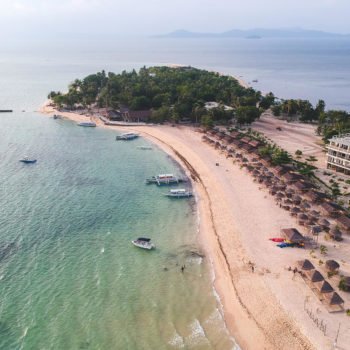One of the most popular spots for whale shark watching activity is in Oslob, a coastal municipality in Southern Cebu. Hundreds of tourists visit this place everyday just to have a one-of-a-kind experience swimming with these gentle giants. Although the activity may sound fun, there are things that you need to know in this tourist attraction. This article features our experience, travel guide, and essential information about Oslob Whale Shark Watching.
Oslob Whale Shark Watching: The Experience
My first whale shark encounter was in Donsol, Sorsogon last summer of 2011 and Oslob was just a silent town that time. A year after, Oslob gained its limelight because of their whale shark watching activity. The attraction became viral across social media and the number of visiting tourists has skyrocketed for the following years.
My friends and I went for an adventure in Southern Cebu and the Oslob Whale Shark Watching is part of our itinerary. We woke early around 0530H just to prevent the crowd. After having our quick breakfast, we head on to Barangay Tan-awan, the site of the famous whale shark watching in Oslob.

Registration and Orientation
We took a habal-habal from our accommodation going to Barangay Tan-awan. We arrived on site at 0600H but there are already hundreds of tourists in the place.
Our habal-habal drivers guided us to the entrance where we registered our names and paid PHP 500/pax for the activity. This includes life-jacket rental, boat rental, and the 30-minutes snorkeling/swimming activity with the whale sharks.

After registration, we went to the briefing area for orientation. Here, a staff member discussed on the guidelines we need to follow during the activity. The points mentioned are the following:
- No touching of whale sharks, throwing of trash in the water, and flash photography.
- Keep a minimum distance of 4 meters from the whale shark.
- No feeding from tourist boats.
- No sunscreen application (because chemicals found in sunscreen are toxic to marine life).

Swimming with Whale Sharks
After the orientation, we went to our assigned boat and sailed to the actual site. Each boat can accommodate up to 8 people and the site is only a few meters from the coast. The whole activity is good for only 30 minutes.
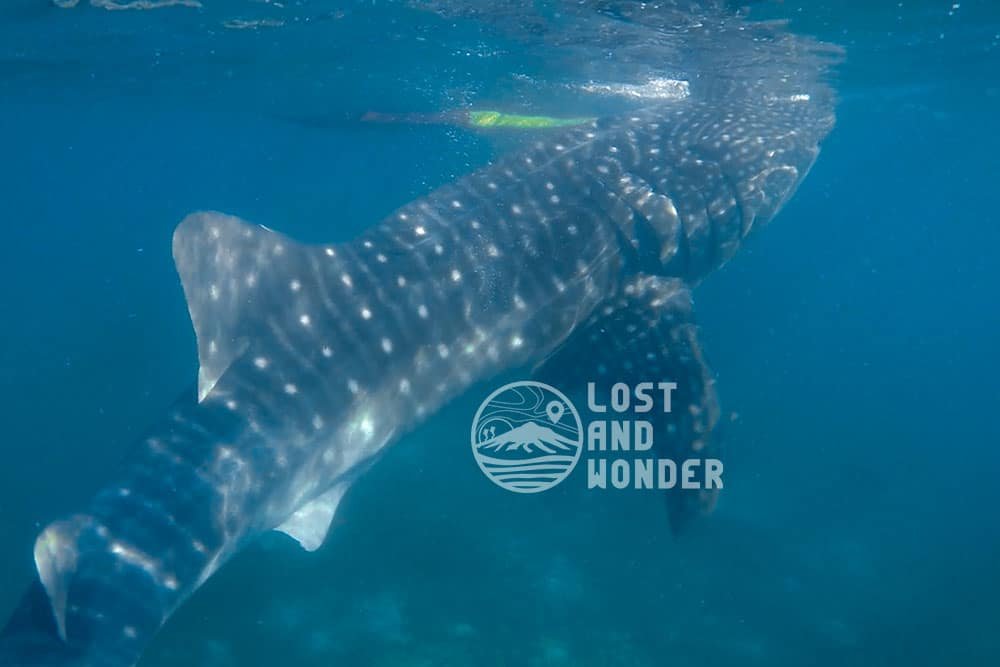
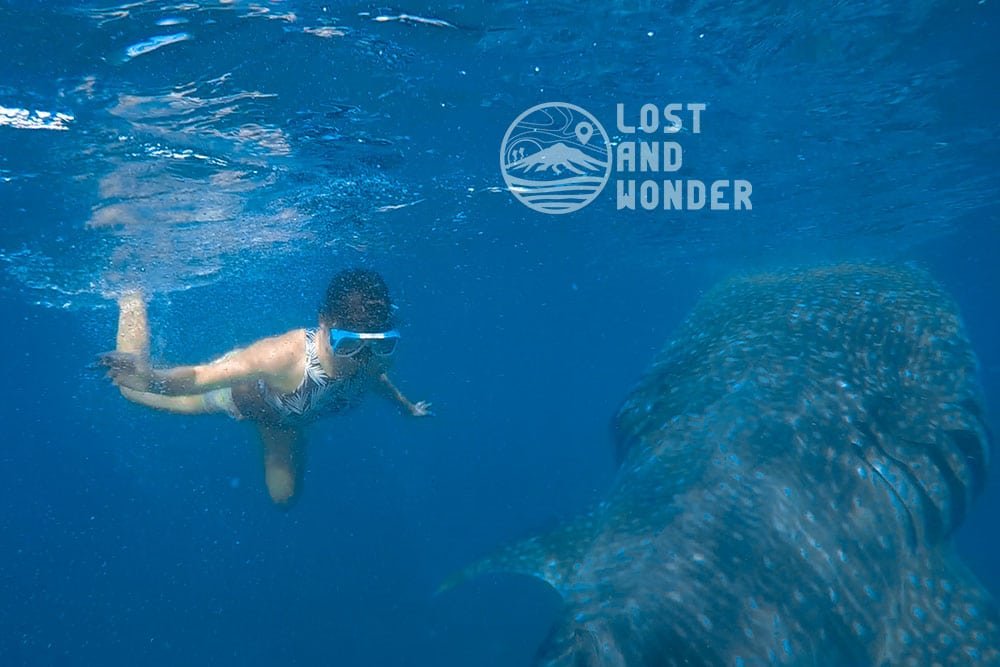
Seeing these creatures swimming in peace are amazing. The distinct dappled feature of their skin makes these whale sharks unique and beautiful. I also observed some men feeding the whale sharks with uyap (krill), which attracts these gentle giants.
After 30 minutes of snorkeling activity, we sailed back to the shore and prepped ourselves. The whale shark watching in Oslob looks simple and fun, but it’s only the tip of an iceberg. A lot of questions circled my mind regarding this activity. It makes me wonder if this tourist attraction is safe for the well-being of the whale sharks.
3 Things You Don’t Know about Oslob Whale Shark Watching
The whale shark watching activity in Oslob is actually controversial. There are experts and groups who condemned this activity due to its altering nature and negative effects it has for these innocent creatures. Although I am not a marine expert or biologist, I think we must advocate for responsible tourism. Here are 3 essential information that you need to know about Oslob Whale Shark Watching:
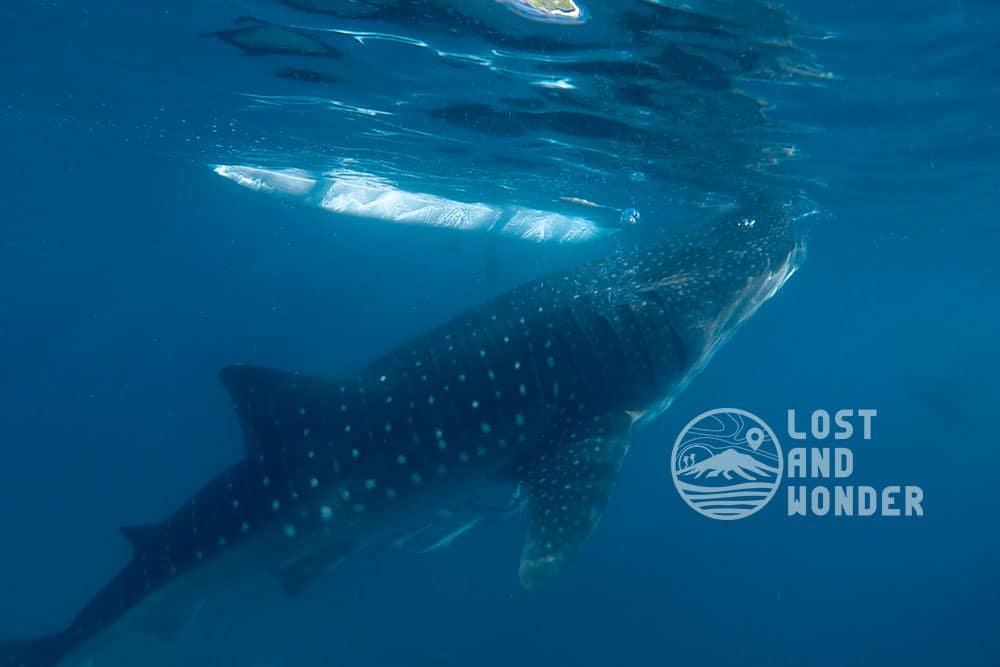
The Migratory Habits of the Whale Sharks are Altered
I was really intrigued when I read the phrase “watching of whale sharks in Oslob Cebu is 99% guaranteed” posted in the official website of whale shark watching. These creatures are highly mobile and their traveling paths are based from seasonal sources of nutrients and breeding patterns. In Oslob, there are staff members who feed these creatures in the morning attracting them to come onsite. This causes the whale sharks to stay in one place which alters their migratory habits. Feeding the whale sharks on purpose can be the reason why they reside in Oslob for long periods.
Concerns about Nutritional Deficiency
Another impact which poses a negative effect in altering migratory habits of whale sharks is nutrition. Whale sharks migrate to places with rich amounts of nutrient-rich plankton. In Oslob, although they are fed daily, the quality of food being fed to these creatures are questionable. There are factors which can affect the health of these gentle giants, including the risk for contamination of food sources and variety of the feeds.
Physical Injuries and Threats
Hundreds of tourists visit Oslob for whale shark activity every day. Although there is an orientation prior to the activity, the compliance of visitors is not strictly monitored. According to a research study made by LAMAVE, there are recorded 1,823 active touches made to the whale sharks. Touching the whale sharks in various forms can cause injury in their skin. In an event of an injury, the whale sharks can be exposed to bacteria from humans which can cause infection.

The Impact to the People of Oslob
The whale shark watching in Oslob is still active up until today. The locals are thankful to these creatures because it brings livelihood and a source of income to the people. If the whale shark activity is stopped then many locals who rely in this tourist attraction will be affected. There are also former fishermen who now work in this place for livelihood. For a price of PHP 500 per person, the money collected from the activity is shared among the locals who worked for that day; which ranges from PHP 1,000 to 1,500 per local.
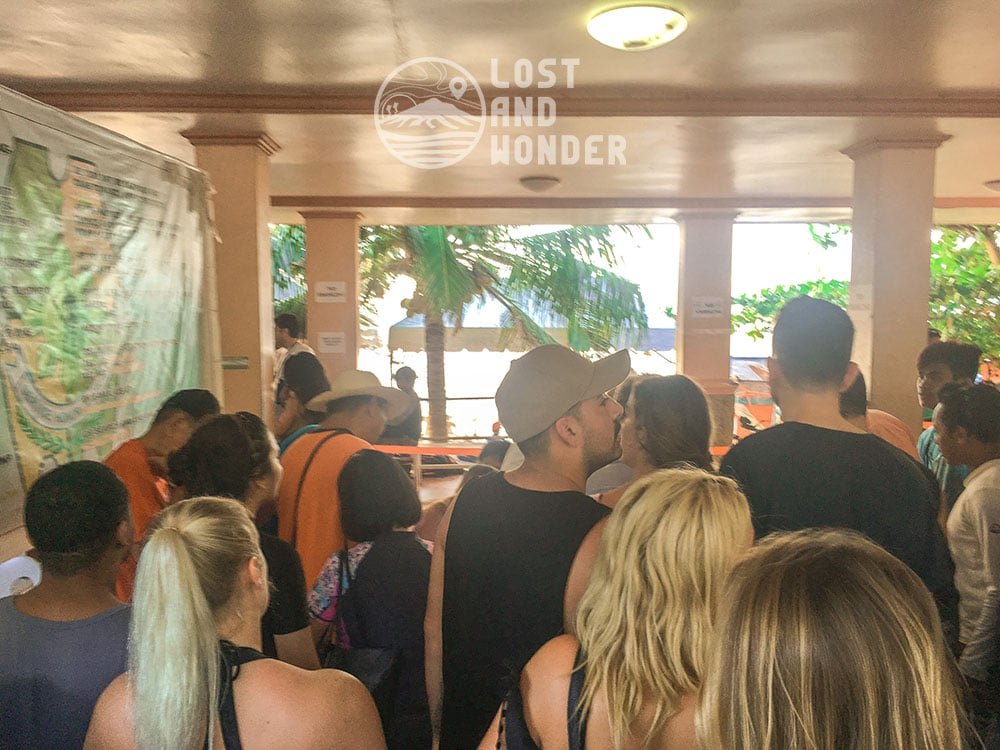
Amid the research studies and proposals, the Central Visayas Regional Development Council said that “there is nothing wrong with feeding whale sharks in Oslob”. Physalus, an Italy-based environmental group, is worried to the long term effects of this activity to the whale sharks. According to the president of Physalus, Alessandro Ponzo, “It looks like being in a zoo, a circus, looking at the animal walking up and down being fed. This is not a natural behaviour that you see.”
Many environmental groups and researchers are continually evaluating the effects of this activity, with the hopes that their results will help in improving policies and practices in the whale shark watching business.
An Alternative to Oslob
The municipality of Donsol in Sorsogon is known as the Whale Shark Capital of the World. There’s also a whale shark watching activity in this place, but the practices here are more natural and compatible to the lifestyle of these gentle giants. The locals of Donsol follow the natural migratory habits of the whale sharks. In contrast, whale shark sighting in Donsol Bay is seasonal which peaks between April and May. This is beneficial to the whale sharks which maintains their natural behavior.
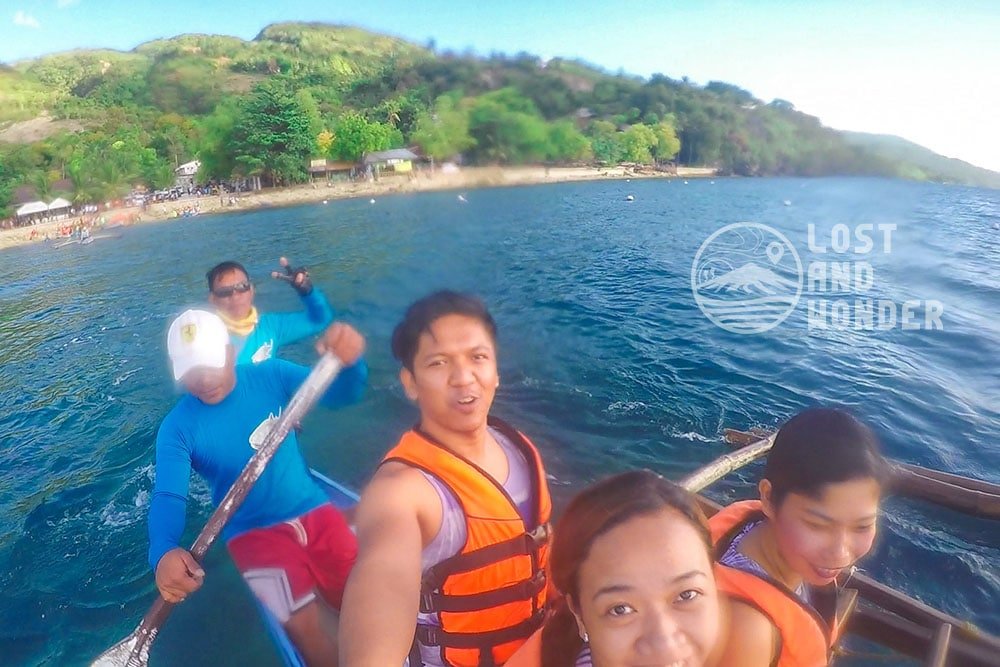
Oslob Whale Shark Watching Conclusion
Whale shark watching in Oslob is amazing but I think the locals must respect the natural behaviors of these gentle giants. These creatures are endangered and if the people keep on altering its habits it may affect its overall well-being. Seeing a whale shark once in your life is a great check in your bucket list, but we must always push for responsible tourism.
Have you experience Oslob Whale Shark Watching? What can you say about this tourist attraction? Share your thoughts in the comments below.
References:
- Don’t Forget to Move. 2015. Why We Choose Not to Swim with Whale Sharks in Cebu. Available at: https://www.dontforgettomove.com/swim-with-whale-sharks-in-cebu-oslob/.
- Dive Bohol. 2015. Why We Do Not Swim with Whale Sharks in Oslob. Available at: http://dive-bohol.com/conservation/5-reasons-not-go-oslob/ .
- LAMAVE. Whale Sharks. Available at: https://www.lamave.org/whale-sharks/#whale-sharks-philippines .
- Inquirer. 2012. Plea to Oslob: Stop Feeding Whale Sharks. Available at http://newsinfo.inquirer.net/238049/plea-to-oslob-stop-feeding-whale-sharks.
- Oslob Whale Sharks. 2013. Nothing Wrong with Feeding Whale Sharks in Oslob. Available at http://www.oslobwhalesharks.com/nothing-wrong-with-feeding-whalesharks-in-oslob-rdc.html .
- Inquirer. 2013. Oslob urged to stop feeding whale sharks. Available at http://newsinfo.inquirer.net/428527/oslob-urged-to-stop-feeding-whale-sharks#ixzz2WWg1Ce38 .
- Oslob Whale Sharks. 2013. Locals, biologists face off over Philippine Whale Shark feeding. Available at http://www.oslobwhalesharks.com/locals-biologists-face-off-over-philippine-whale-shark-feeding.html .






